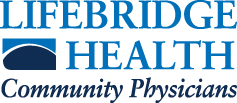
Did you know that as the temperatures fall your risk of heart attack can increase? If you have cardiovascular disease you’ve probably already been told that you should avoid shoveling heavy snow, but it’s not just shoveling—cold weather can introduce other risks.
Cold weather can cause blood vessels to constrict, reduce oxygen levels, and cause your heart rate and blood pressure to increase. If you already have narrowing of blood vessels even moderate amounts of exertion can further reduce blood flow to the heart and cause chest pain or even heart attack. A study from the American College of Cardiology suggests that, in patients with atrial fibrillation, the risk of stroke is also greater during cold weather months.
Cold weather can make you too hot!
Yes, bundling up against the cold and working outside in cold weather can quickly cause you to overheat. When this happens, blood vessels can dilate causing a drop in blood pressure and reducing the amount of blood that reaches the heart. Dress warmly but be sure to wear layers of clothing when spending time outdoors and take something off as you start to overheat.
Colds and Flu
Cold weather is also cold and flu season. As your body fights off illness, your heart rate can increase, putting additional demands on your heart. Colds and flu can also cause you to quickly become dehydrated, dropping blood pressure and reducing oxygen to the heart. Get your flu shot early and wash your hands often.
Alcohol and Cold Weather
A hot toddy on a cold day might make you feel warm and believe that you can shovel the whole driveway but, as alcohol dilates the small blood vessels close to your skin, it can actually cause you to lose body heat and lead to hypothermia. It can also cause you to underestimate your level of exertion. Avoid alcohol if you’re spending time outdoors during cold weather.
Do you have questions about heart health or cardiovascular disease? Please feel free to drop us a note or call us at 410-469-4000.

